

Tao Te Ching
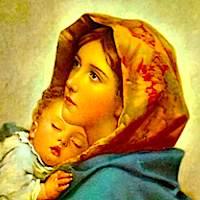
Christian (Χριστός) Lineage
Many if not most images of Christianity associate with superstition, blind belief, intolerance, dogmatism... opposites to our themes of the wisdom beyond words, understanding the sense and not just the superficial, the courage to create and innovate instead of following herd instinct and the status quo. As the examples of wise and enlightened men and women listed here show however, many Christian practitioners and philosophic inspirations clearly fit into our lineages and significantly contributed to the evolution of consciousness.
People (77)
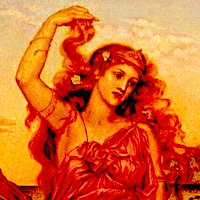
Semele Σεμέλη
c. 2000 -1970 BCE
Early Greek Virgin Mary
Early prototype for the Virgin Mary, “earth mother,” daughter of Cadmus, the first Greek hero, founder and first king of Thebes; Semele gave birth to the early Jesus-figure, Dionysus who was born on December 25th, changed water into wine, was the son of god and a mortal woman, died and resurrected after 3 days. Worshipped by the Athenians, in Roman mythology, she became the goddess Stimula, in Neoplatonic philosophy she personified “intellectual imagination,” and during the Enlightenment became a popular theme for operas. Incinerated because of seeing too deeply into the nature of a god, she represents the Icarus-principle of hazards from too much of a good thing.
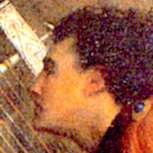
Orpheus /ˈɔːrfiəs
7th century BCE
"Greatest poet and musician of all time"
Accepted by most ancient sources as a real person but also shrouded in myth and legend, Greeks venerated Orpheus as the greatest poet and musician of all time believing his music could charm animals, divert rivers, and even make rocks and trees dance. As prophet, musical archetype, and founder of the Orphic mysteries; his influence on art, poetry, film, opera, music, and painting continues into modern times. As well as influencing Stoic pantheism and the Neo-Platonists’ asceticism; he continued a mystic cult migrated from Egyptian Osiris that included the suffering, death, and resurrection of a divine son; judgments at death of heaven, hell, or purgatory; “original sin,” and a communion sacrament of eating a god’s body and blood; it became a basis for the Christianity flourishing today.
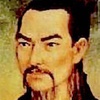
Mozi 墨子 (Mòzǐ)
470 – 391 BCE
Chinese personification of Newton, da Vinci, and Jesus
Carpenter, precursor to Newton in science, to da Vinci with inventions, to Jesus and Christianity in religion, a politician so provocative emperors burned his books and followers; Mozi taught authenticity and personal insight over dogma and obedience, "universal love,” and the "Golden Rule.” A selfless worker for the good of the others without concern for personal gain, he described inherent basic goodness, benevolence as practical and natural, adversity as beneficial, and government based on talent and merit rather than background and family. Traveling from crisis to crisis in the war-ravaged China of his time, he stopped wars and prevented battles.
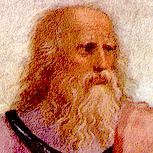
Plato Πλάτων
428 – 348 BCE
Founder of the Western world’s first and longest-lived university, one of the most influential philosophers in all history; Plato used the influence of his teacher Socrates, the skill of his student Aristotle, and his own personal genius to establish the foundation of Western science. Founder of process philosophy, Alfred North Whitehead described all of European philosophy as “footnotes to Plato.” Nietzsche described Christianity as "Platonism for the people" and Christianity is indeed infused with Platonic thought that also profoundly influenced Saint Augustine, one of the most respected Christian philosophers. Platonic thought has continually revived through the ages dominating the Middle Ages, inspiring th Renaissance, and continues as a profound influence today.

Jesus
3 BCE – 30 CE
Descriptions of Jesus were written in New Testament documents between 70 and 150 CE, a time of many different Christian books, many different gospels. In 170 CE church leaders first decided which books were “official,” which weren’t. More were added later and the modern version finalized at The Council of Hippo in 393. Some historians believe this selection was at least partially based on politics, patriarchy, and power. In any case, many of the banned and burned books known as Gnostic Gospels seem to have more wisdom and understanding, more connection to the non-thought lineage than the officially recognized texts. Many of the quotes here come from one of these, The Gospel of Thomas discovered in 1945.

Mary of Magdala
3 BCE – 120 CE
Called the ”Apostle to the Apostles" by the 3rd century theologian Hippolytus, the story of Mary of Magdala resembles that of Mahākāśyapa – the only one of the Buddha’s disciples to understand the Flower Sermon. In the Gospel of Mary, she was the only disciple to understand Jesus’ inner teachings about basic goodness, discovering the truth within ourselves rather than an external authority, the dangers of following charismatic leaders and sets of rules and laws rather than the wisdom within.
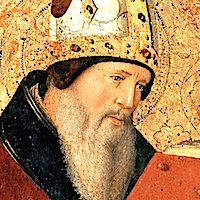
Augustine ɔːɡəstiːn (Saint Augustine, Saint Austin, Augustine of Hippo)
354 – 430 CE
Philosophical Christian theologian, Neoplatonist, prolific writer of over 100 books, and strong influence on the evolution of Western philosophy; Augustine fought against slavery and pre-emptive war, supported women’s rights, and encouraged the acceptance of Jews. Although responsible for defining and promoting the concept of original sin, railing against magic, and fighting against paganism; his vision of the “heavenly city” positively influenced Marxism, the Enlightenment, and the environmental movement. Although used as a foundation for dogmatic belief systems, he appreciated doubt and described the search for truth and understanding as a “restless journey.” Channeling the mysticism of Plotinus and influenced by Virgil, Cicero, Stoicism, and Platonism; he became a focus for later philosophers like Schopenhauer, Kierkegaard, Bertrand Russell, Nietzsche, and Heidegger.
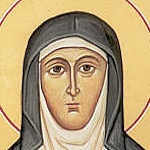
Hilda of Whitby
614 – 680 CE
Living in a brutal time of violent warlords and kings, Hilda’s mother was a poor, homeless widow. From this humble and challenging beginning, she became a powerful advisor to officials, bishops, and kings. The historian Bede wrote, “All who knew her called her mother because of her outstanding devotion and grace.” Abbess and founder of several monasteries, five men who lived and studied at one of these became bishops and two of them are now revered as saints. She is considered a patron saint of poetry, learning and culture.
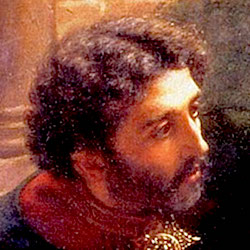
Peter Abelard Pierre Abélard
1079 – 1142 CE
Peter Abelard, Pierre Abélard (1079 – 1142)
Described as "the keenest thinker and boldest theologian of the 12th Century,” Abelard was on a strong path to becoming a pope when he fell in love with Héloïse and instead wrote some of the most important books of his era while becoming a legend in the history of romantic love, of inner certainty over external, status quo coersion. In his early life, thousands of students coming from many countries came to hear him teach. His fame and admiration immense, but his love of Héloïse led to his castration by her uncle, his becoming a monk, and her becoming a nun. This challenged the physical side of their relationship but their deep emotional bond continued through letters written the rest of their lives.
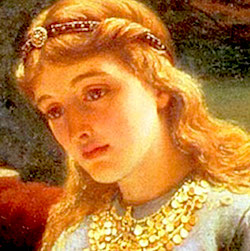
Heloise
1090 – 1164 CE
An orphan raised in a convent, Héloïse became a brilliant scholar, one of the earliest and most radical feminists, a powerful abbess over multiple convents, and half of one of the most famous and talked about relationships of her era. As femme fatale to Peter Abélard when he was on the rise toward becoming a pope, her influence caused him immense humiliation and pain as well as the inspiration for some of the most important books of the time, a regard for the sense over the words, and a declaration of philosophical independence for reason over belief. It’s become a tradition for the hoping-to-find-true love to leave letters at their crypt.

Hildegard of Bingen
1098 – 1179 CE
Circumventing her times’ strong prejudice and bans against women's social, artistic and theological participation, Hildegard became a famous writer, composer, botanist, philosopher, visionary, Christian mystic and the founder of scientific natural history in Germany. The first Westerner credited with describing the healing powers of food and corresponding with the political, religious, and scientific leaders of her day (popes, emperors, saints and scientists), she used her influence to combat corruption, promote spiritual insight, holistic healing, the arts, and women’s role in the world
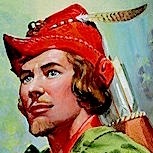
Robin Hood
1160 – 1247 CE
The historicity debate about Robin Hood may not be as much about if there really was one as about how many different ones there were. A symbol for history’s recurring story of class warfare, the rich against the poor, the economics and politics of keeping the highborn high and the lowborn low is as relevant today as it was in medieval England and the dawn of civilization. While in Chinese political philosophy, rulers were taught that if the poor were too poor it’s the government’s fault and the they have every right to steal, in European and American history the Robin Hoods were vilified. In Atlas Shrugged, Ayn Rand wrote, “until the last trace of Robin Hood is wiped out of men’s minds, we will not have a decent world to live in.”

Francis of Assisi
1181 – 1226 CE
One of the most venerated religious figures in history and considered the patron saint of animals and the natural environment, a pope confirmed Francis as “Patron Saint of Ecology.” He believed nature itself is “the mirror of God” and he’s closely connected to the lineage of Lao Tzu, the early Taoists, Thoreau, Emerson, and Native Americans. He traveled widely, worked hard to end the Crusades, dedicated himself and his followers to poverty and helping the poor, exposed the materialism of the church leaders of his time, and by many accounts successfully changed history.
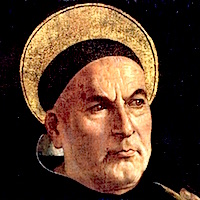
Thomas Aquinas
1225 – 1274 CE
Greatest Catholic theologian/philosopher, considered one of the top 12 western philosophers of all time, jurist, and Dominican friar; Aquinas had a dominant influence on Western culture, ethics, law, and political theory. Breaking from the theology of his time, he attempted reconciling ancient Greek philosophy (mainly Aristotle) with Christianity, extolled reason over blind faith, and created an intellectual platform for science that is still being used today by cognitive neuroscientists researching brain dynamics. Undermining dogmatic, rigid approaches to morality, his “Principle of double effect” emphasizes intention over consequences and is still debated in places like the U.S. Supreme Court. John Stuart Mill criticized this attitude stating that while intention may help judge character, it doesn’t effect the rightness/wrongness of an action.

Meister Eckhart (Eckhart von Hochheim)
1260 – 1328 CE
Philosopher, theologian, and mystic; Meister Eckhart represents a cultural and philosophical pivot at the end of the Middle Ages. In his own words but like Lao Tzu and the Buddha, he taught that Enlightenment is hidden inside our hearts and through emptiness, compassion and egolessness we become one. Though brought before the Inquisition and tried for heresy, his influence since includes from Schopenhauer (who said, “Buddha, Eckhardt, and I all teach essentially the same.”), to the Theosophical Society, to the politics of the UN’s Dag Hammarskjöld, to the psychology of Erich Fromm, to artists like Van Gough and Dürer, to authors like J. D. Salinger, and in modern times to theologians like Matthew Fox and Eckhart Tolle.
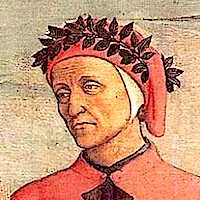
Dante (Durante degli Alighieri)
1265 – 1321 CE
Dante fell madly in love with Beatrice when she was only 8 years old and described his passion as “a God stronger than I who came and ruled me.” This unrequited love lasted through her marriage to another, her death at only 24, and throughout Dante’s life. It inspired his great work, The Divine Comedy now considered the greatest book in the Italian language and most important Middle Ages poem. Dante’s politics led to his exile, loss of citizenship and property, 15 years of poverty-stricken wandering, and a decree for him to be arrested and burned alive. His vivid descriptions of hell were based on personal experience and his writings saved him from the intensity of his suffering as it helped establish modern literature. Florence apologized for his exile 700 years later.

William of Ockham
1287 – 1347 CE
Major intellectual figure during medieval times, Franciscan friar at the center of the biggest political controversies of his era, and famous for his principle now called Occam’s razor; William of Ockham’s commentaries were condemned by a council of bishops and he was commanded to defend himself at a papal court. Instead, he fled the country, took refuge with the Holy Roman Emperor, and was excommunicated. One of the first to encourage a strong separation between church and state, a liberal democratic ideology, and social contract theory; his Occam's Razor theory became a small-is-beautiful, less-is-more foundation for modern science and natural philosophy.
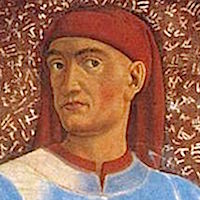
Giovanni Boccaccio dʒoˈvanni bokˈkattʃo
1313 – 1375 CE
Close student, friend and collaborator with the “Father of the Renaissance,” Petrarch; Boccaccio became a popular poet/writer, “the first Greek humanist in Western Europe,” and promoted the ancient literature, philosophy, and history which set the stage for the Renaissance. His book on classical mythology became a key reference for 400+ years and challenged Christian belief that only the Bible was relevant, that there was only harm in “pagan” writings. In an early nod to feminist proposition, he wrote the first collection devoted to the biographies of famous women. Living through a tumultuous time of political intrigue, the executions of his friends, bitter poverty and bad health; he resisted many of the era’s superstitious and setting-sun forces; translated works by Homer, Euripides, and Aristotle; and helped launch one of history’s most influential shifts, the Renaissance.
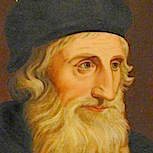
John Wycliffe
1320 – 1384 CE
Iconoclastic theologian, philosophical dissident, and champion of the common people; Wycliffe translated the Bible into English undermining Church authoritarianism and belief that people needed a spiritual mediator to tell them what was true, ethical and good. He criticized the political power, materialistic wealth and corruption common with the clergy and papal hierarchy of his time helping to even out the extreme rich-poor gap. He influenced Jan Hus, Martin Luther, and the beginnings of Protestantism; he was condemned as a heretic, his bones were dug up, his writings were burned and banned - and his influence continues.
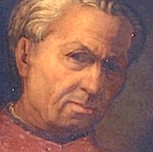
Poggio Bracciolini
1380 – 1459 CE
Gladiatorial orator, personal secretary to 7 popes including the “Antipope” John XXIII, scholar, early humanist, prolific and for his time astonishing writer; Poggio helped develop the Italic font, invented the Roman font still popular today, and helped spark a rebirth of old wisdom that led Europe out of the Dark Ages, into science and our modern age. Profuse traveller, friend to the great scholars of his time as well as politicians like Pope Nicolas V, Cosimo and Lorenzo de' Medici who supported his efforts to find and preserve ancient Greek and Roman manuscripts; he discovered and copied a large number of important classical works forgotten and decaying in old libraries including De Rerum Natura, Lucretius’ only surviving book.
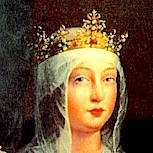
Isabella I (of Castile)
1445 – 1504 CE
Wise Renaissance queen, patron of the arts, strong centralizing leader, Christopher Columbus’ financier known for her fairness and justice, and the first woman depicted on both a US coin and US postal stamp; Isabella - after helping to reunify Spain, reorganized the government, dramatically brought down the debt and the crime rate to the lowest it had been in many years, and established Spain as the first global power dominating Europe for more than 100 years. Although she persecuted Jews and Muslims, her life was scrutinized by the Catholic Church for 500 years before being sainted in 1974 with the title, "Servant of God.”

Erasmus (Desiderius Roterodamus)
1466 – 1536 CE
"Greatest scholar of the northern Renaissance"
"Prince of the Humanists,” famous translator, globalist and true citizen of the world; Erasmus emphasized a middle way approach between Luther and the Pope during the Reformation angering both sides. Not many know much about about him but his legacy is well known in the sayings and phrases he compiled and popularized. Some of his sayings like “The grass is always greener on the other side of the fence,” “God helps those who help themselves,” “Don’t put the cart before the horse,” “Leave no stone unturned,” “In the land of the blind the one-eyed man is king,” “No sooner said then done,” “Between a rock and a hard place,” “Call a spade a spade,” “Women – can’t live with them or without them,” “Like father like son,” “To look a gift horse in the mouth,” “To break the ice,” “To cut to the quick,” “One step at a time,” “A necessary evil,” “What’s done cannot be undone,” “Up to his eyeballs,” “To sleep on it,” have not only entered into common conversation; but also, become a powerful influence on Western culture.
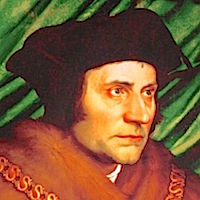
Thomas More
1478 – 1535 CE
Thomas Moore (1478 – 1535)
Christian humanist, Henry VIII confidant, ascetic, Lord High Chancellor of England, brave psychological explorer; Moore both embraced and went beyond his time and culture. On one hand opposing Martin Luther and the Protestant Reformation, he also protested against Henry VIII’s appropriation of the title, Supreme Head of the Church of England and was beheaded for his efforts. Living at a time of deep cultural transition when idle noblemen raised rents, created land enclosures, caused extreme poverty, starvation, and 72,000 English thieves were hanged; he helped revive a radical interest in Lucretius and Epicureanism. His book Utopia envisioned a society based on the pursuit of collective happiness and included universal health care, public housing, child care centers and a 6-hour work day rather than the prevalent materialism, nepotistic, personal advantage and power. G. K. Chesterton, Jonathan Swift, and many others considered him the greatest Englishman.

Teresa of Avila
1515 – 1582 CE
In a time caught up in the fury and violence of religious intolerance, inquisitions and sectarian war: Teresa symbolized a child-like devotion and surrendering to a forgiving and compassionate god. Saint, reformer, founder of 40 Carmelite monasteries, author and theologian; with deep insight she championed and helped establish a tradition for western mysticism and was the first in the West to harmonize a scientific view with contemplation and a mystical understanding. An inspiration for the Spanish Renaissance and Christian meditation practice, she promoted “mental prayer” and a personal approach to spirituality.
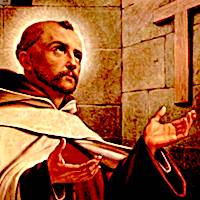
John of the Cross
1542 – 1591 CE
Mystic, religious poet, major Counter-Reformation influence, and Roman Catholic saint; John of the Cross became one of the best Spanish writers of all times. While imprisoned and tortured by conservative Carmelites opposed to reform, he wrote one of his most famous poems (Spiritual Canticle) on scraps of paper secretly given to him by his jailer. After a dramatic escape, he became a friend, supporter and confessor of Teresa of Ávila and founded the first monastery of friars following her principles. In the Christian mystical tradition of the Desert Fathers, Plotinus, and Meister Eckhart; he taught a perspective above sectarian in-fighting, rigid dogmatic views, and unthinking allegiance.
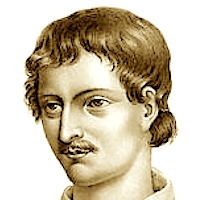
Giordano Bruno
1548 – 1600 CE
Giordano Bruno (1548 – 1600)
Like Galileo, a "martyr of science," Dominican friar, Epicurean poet, cosmological mathematician; Bruno fled his monastery and wandered through France and Italy teaching. Burned at the stake by the Roman Inquisition for his scientific, pantheistic, and Epicurean views; Bruno first described stars as distant suns with planets of their own, championed the Copernican view that the earth is not the center of the universe, and taught the dangerous view that likewise people and our civilizations are not the center of the cosmos but only a tiny part of something much larger. This led to an 8-year trial, his torture and death but also a strong foundation for the newly emerging sciences and the openness to free thought.
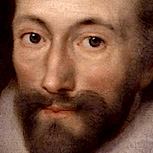
John Donne
1572 – 1631 CE
Leading and inventive metaphysical poet, cleric, politician, womanizer, and one of the greatest love poets; John Donne brought a distinctive style filled with paradoxes and ironies to poems ranging in topic from deeply religious to vibrantly erotic. Fired and imprisoned because of a secret marriage, he lived in poverty for many years while devoting his attention to the idea of “true religion” beyond the superficiality of undigested concepts and superstitious belief. A strong influence on W. B. Yeats, Hemingway, T. S. Eliot, Dylan Thomas, Coleridge, W. H. Auden, Van Morrison, Robert Oppenheimer; his impact continues today with examples like the movie The Incredibles, that took its Nomanisan Island from his famous saying, "No man is an island.”
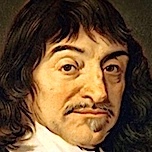
René Descartes
1596 – 1650 CE
Though remaining a Catholic, solidifying the dualistic view in Western thought as well as “Cogito ergo sum” belief in a separate self; Descartes emphasized methodic doubt and the impossibility of externally based intellectual certainty undermining faith in belief and Church doctrine. This sparked a thought revolution that created the modern era. He developed analytic geometry (using x, y, and z for unknowns) and using superscripts for powers or exponents, discovered the law of reflection, and the basis for the development of calculus. Known as the “father of modern philosophy,” he changed the course of Western philosophy and his influence continues to this day.
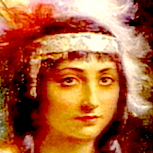
Pocahontas (Matoaka)
1596 – 1617 CE
Daughter of a powerful Native American Chief, savior of John Smith, supporter of the Jamestown colony, and the first Native American featured on a US stamp; Pocahontas was captured and held for ransom during an English-Indian war. Instead of returning to her tribe when she could, she stayed with the English, converted to Christianity and proceed to convert hearts and minds in both America and Europe. Her name literally means “little reckless” and she was called in Europe a "civilized savage" but history clarifies the European savagery, the Native American wisdom. Her descendants include two first ladies, Nancy Reagan and Woodrow Wilson's wife, Edith Wilson; actor Glenn Strange famous for his roles as Frankenstein’s monster and the Gunsmoke bartender; as well as astronomer Percival Lowell responsible for the discovery of Pluto and an important inspiration for H.G. Wells, Robert Heinlein, Ray Bradbury, and Edgar Rice Burroughs.

Balthasar Gracian
1601 – 1658 CE
Spanish Jesuit, philosopher and prolific writer, Gracian amplified the slogan/quote tradition of Aesop, Yang Xiung, the Dhammapada, Atisa and continued by Erasmus and Ben Franklin. At times highly respected, he was also exiled by outraged superiors for his provocative philosophy and lost his teaching tenure. An important influence on Nietzsche, Voltaire, Schopenhauer and Winston Churchill; his book Art of Worldly Wisdom - translated into many languages – continues today as a best seller and exceptionally valuable resource of helpful advice.
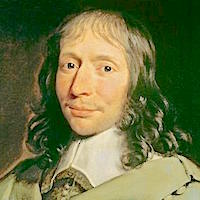
Blaise Pascal
1623 – 1662 CE
One of the greatest French writers of all time
Theologian, inventor, physicist, philosopher; Pascal invented the mechanical calculator, set up the first bus line moving passengers, became one of the greatest French writers, and developed probability theory which has become critical to economics, actuarial science, and the way we understand decision-making and risk. Although he identified with Jansenism which emphasized original sin and human depravity and frequently fixated on religious dogma, his understanding extended to a deep realization of our strong propensity toward projection and self-deception as well as a philosophy of cutting through this kind of deceit and duplicity. His significant scientific contributions led to attaching his name to a programming language, a unit of pressure, and a hydrostatic law. Will Durant called one of his writings, "the most eloquent book in French prose.”
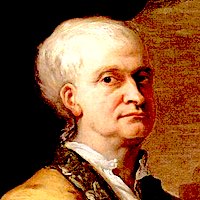
Isaac Newton
1642 – 1726 CE
Natural philosopher, mathematician, astronomer, theologian, author and physicist, and one of the most influential scientists of all time; Newton built the first practical telescope, made critical discoveries in the field of optics, developed calculus, made numerous scientific discoveries and also studied alchemy. He established science over faith as the most profound influence on modern thought and his discovery of gravitation revolutionized the study of astronomy. He established the laws of motion and mechanics that became a platform for the modern miracles of science. Exemplifying Gracian’s dictum, “All giants are really dwarfs,” stories of Newton’s absentmindedness proliferate. Asked to boil an egg for 3 minutes, he put his watch in the water and stared at the eggs. He would do things like go upstairs to change for a formal dinner but instead get undressed and go to bed. Voltaire considered him one of the greatest men who have ever lived.
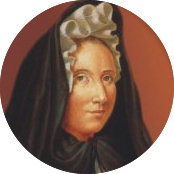
Madame Guyon Jeanne-Marie Bouvier de la Motte-Guyon
1648 – 1717 CE
Madame Guyon, Jeanne-Marie Bouvier de la Motte-Guyon (1648 - 1717)
French mystic, key advocate of Quietism, strong influence on the Quakers and other anti-materialistic Christian traditions; Madame Guyon was widowed at 28 having already borne 5 children. Advocating the ‘prayer of quiet’ and interior realization - teachings of Teresa of Avila and John of the Cross - she ran afoul of the Roman Catholic Church’s emphasis on believing in only external authority, was branded a heretic, and imprisoned in the Bastille for 7 years. Praying all the time and finding her God in every detail of life, she exemplified belief in basic goodness, the sacredness of all experience, and a genuine, European, Wu Wei tradition.

Benjamin Lay
1682 – 1759 CE
Benjamin Lay (1682 - 1759)
Physical dwarf but moral giant, “the world’s first revolutionary abolitionist,” inspiration for generations, wild, confrontational, and uncompromising opponent of slavery; Benjamin Lay wrote over 200 polemics against slavery, sweatshops, over-consumptions, capital punishment, the prison system, decadent rich elites, and for vegetarianism, animal rights and sustainability. Living a lifestyle of almost complete self-sustenance, he grew his his own food, made his own clothes, lived in a cave eating only fruits and vegetables, and wouldn’t use anything that came from the killing of animals. Unconstrained even when abandoned by his fellow Quakers (who later commonly kept pictures of him in their homes), he became the prototype of a class and race-conscious, environmental ultra radical and pioneered ways of protesting still used today.
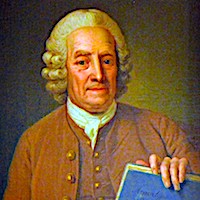
Emanuel Swedenborg
1688 – 1772 CE
Scientist, mystic, influential philosopher
A scientist, philosopher, theologian, inventor, and mystic; Swedenborg began his career as a genius-level scientist and later—detesting the materialism of his academic life—experienced visions and became a highly influential and mystical theologian. He was the first to identify nerve cells, identify the brain's cortex, and pioneered many discoveries in magnetism, phosphorescence, and brain function. His mystical visions described visits to heaven and hell, conversations with spirits from the moon, the planets in our solar system as well as with those from planets further away. His influence spread throughout Europe and into modern times through figures like William Blake, Coleridge, Emerson, Browning, and several Christian denominations.
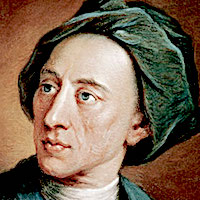
Alexander Pope
1688 – 1744 CE
Second most quoted English writer
Second most quoted English writer after Shakespeare, anonymous and profound influence on culture, compassionate commentator on humankind’s foolishness; Pope foresaw and criticized the growing materialism and consumerism of his era. His critiques were so pointed and insightful, they aroused such hatred that he was viciously slandered with lies and was forced to carry a pistol when he went for walks. From a Catholic family in England when Catholics were banned from teaching or going to a university; Pope’s aunt had to teach him to read and he was largely self-taught with help of sages like Homer, Horace, Virgil, Shakespeare, and Chaucer. Suffering ill health from an early age, he had a kind of tuberculosis from age 12 that turned him into a severe hunchback and limited his height unto only 4 feet, 6 inches. Transmuting his difficulties into art, he completed impressive translations, critical essays, and poems that created new forms as well as inspiring both people of his times and ours.
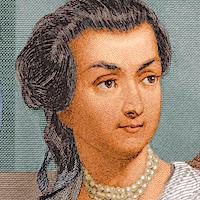
Abigail Adams
1744 – 1818 CE
One of the most exceptional women in American history
The first USA Second Lady and second First Lady, wife and advisor to president John Adams, mother of president John Quincy Adams, and one of the most exceptional women in American history; Abigail Adams became instrumental in the founding of the United States. A powerful influence for women’s rights, she emphasized the need for their education. A strong voice against slavery, she believed it was evil and a threat to democracy. Opposed to dogmatic, superstitious religious belief, she advocated for a heart-felt connection with a wisdom beyond words rather than a rote belief. Her accomplishments become more impressive when you consider the culture of her time when women’s roles were mainly domestic and educating women was considered foolish. Abigail never went to school but her self-education made her the most wise and influential in an extremely influential family.
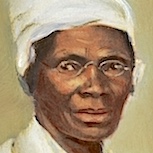
Sojourner Truth (Isabella (“Bell”) Baumfree)
1797 – 1883 CE
Born into slavery and now listed in the “100 Most Significant Americans of All Time,” Sojourner escaped with her infant daughter, went to court trying to get her son back and became the first black woman to win a case like this. She traveled extensively promoting the abolition of slavery, helped recruit black troops during the Civil War and tried to get land grants for freed slaves after the war. A powerful women's rights activist and friend of Susan B. Anthony, she gave one of the most famous speeches on women's rights and is considered a saint by both the Episcopal and Lutheran churches.
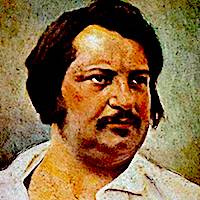
Balzac (Honoré de Balzac)
1799 – 1850 CE
(–1850)
Novelist, playwright, journalist, founding influence on European realism; Balzac only lived 51 years but wrote 92 novels, many short stories and plays. Famous for his 2000+ morally ambiguous and multi-faceted characters, he called himself a “Secretary of Society” and thought of his novels as a kind of history. He pioneered and made popular both the “novel of ideas” and the multi-generational, sequencing novel that carried characters from one story and period of their life to another. A dramatic failure in most of his life, he ran for a political office but only received 20 votes while just one of the other candidates had almost 160,000. No matter how much money he made, he was never self-supporting because of an insatiable appetite for luxuries and he had to frequently change homes and names to hide from creditors. Multiple business ventures failed miserably but his money-making optimism didn’t fade. His influence extended to luminaries like Émile Zola, Charles Dickens, Jack Kerouac, Henry James, Akira Kurosawa and Friedrich Engels among many more.
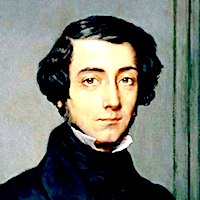
Alexis de Tocqueville
1805 – 1859 CE
Pioneering researcher into the conflicts between freedom and equality
French diplomat, historian, political scientist, and one of the founding theorists of sociology; de Tocqueville analyzed social conditions, living standards and the relationship of the individual to the state. Active in politics and strong proponent of political freedom, he traveled through the United States in an effort that produced one of the most influential books of the time—Democracy in America—as well as helping Europe transition from an aristocratic to a more democratic political order. Although the rallying cry of the revolutions he supported was “Freedom and Equality”, he described the conflict between the two and the need for balance. Pointing out the potential of a tyranny of the minority, the dangers of individualism, materialism, and majority rule leading to mediocrity; he predicted many of the social issues we grapple with today.
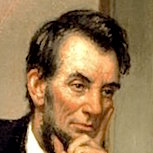
Abraham Lincoln
1809 – 1865 CE
Greatest American president, iconclast, skeptic, self-educated lawyer and congressman opposed to the Mexican–American War whose opposition to the expansion of slavery caused 7 slave states to form the Confederacy when he was elected president; Lincoln skillfully maneuvered between “War and Anti-War Democrats” who wanted to compromise with the South, “Radical Republicans” who wanted to harshly punish the South, fixated secessionists, and British interventionists. His oratory and common sense helped guide the USA through its biggest political and moral crisis while abolishing slavery, preserving the Union, and modernizing the economy. Using the army to protect escaped slaves, he closely supervised the war and planned a compassionate rebuilding of the South until his assassination.
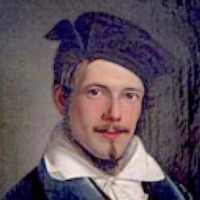
Friedrich Viktor Strauß
1809 – 1899 CE
First German Tao Te Ching translator
Theologian, poet, minister, translator, and scholar; Strauß published the first German Tao Te Ching translation in 1880. He also translated Chinese classic poetry, wrote novellas and gypsy romance. Sill popular today, his Tao Te Ching translation's 11th edition was published in 2004. His translation of the Shijing (Book of Songs) in 1880 became the first German translation. An ambassador and minister, he also translated his insight and understanding of Chinese wisdom into Western culture. Some of his hymns are still sung in churches and for weddings.
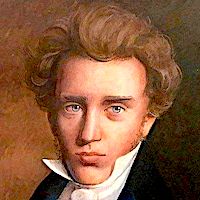
Søren Kierkegaard
1813 – 1855 CE
"The first existentialist philosopher"
Poet, theologian, social critic, philosopher and religious writer; Kierkegaard became a major influence on contemporary world culture. In the world of psychology, he founded Christian, humanistic, and existential schools inspiring therapists and theorists like Viktor Frankl, Carl Rogers, Erich Fromm, and Rollo May. In the field of literature, he influenced and inspired authors like Jorge Luis Borges, Hermann Hesse, W. H. Auden, Franz Kafka, Rainer Maria Rilke, J.D. Salinger and John Updike. His theological/philosophical influence extended to Martin Buber, Karl Jaspers, and Martin Heidegger. Kierkegaard emphasized experience over theory, personal life over "herd instinct," and Christianity as love rather than organization and dogma.
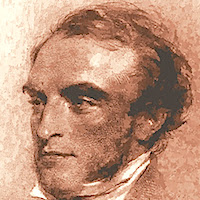
James Legge
1815 – 1897 CE
Prolific translator, editor of the first Chinese newspaper in Hong Kong, publisher of the first major volume of Chinese poetry into English, first Professor of Chinese at Oxford University, Christian missionary to China for 33 years; Legge helped translate the extensive Sacred Books of the East series, 50 volumes of Chinese classics. His purpose in this though was to provide knowledge and understanding to Christian missionaries so that they could better convert Chinese so his translations easily became corrupted by his strong sectarian point of view. In spite of these flaws, his work helped make great strides in helping “West meet East.”
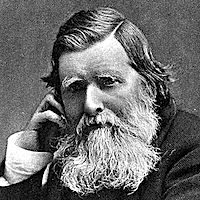
John Ruskin
1819 – 1900 CE
John Ruskin (1819 - 1900)
Strong and continuing international advocate for sustainability and protecting the environment, Christian socialist, leading Victorian era art critic, poet, philanthropist, and social thinker; Ruskin wrote over 250 manuscripts, influencing his contemporaries and many strands continuing today into modern culture. Admired by Proust, Gandhi, and Ryuzo Mikimoto in Japan; Leo Tolstoy called him, "one of the most remarkable men not only of England and of our generation, but of all countries and times.” Emphasizing the unity of nature, art, and culture; he developed principles for an ideal society which were used to set up many “Utopian Colonies.” His ideas helped found the modern Olympic Games, the British welfare state, many kind of social insurance programs, as well as the “garden city movement” that first included "greenbelts" in urban planning.

Florence Nightingale
1820 – 1910 CE
The founder of modern nursing, she started the first secular nursing school in the world, emphasized preventive medicine and holistic health, improved healthcare for all classes as well as hunger relief in India. She helped abolish harsh prostitution laws and expanded acceptable roles for women. A strong Christian, she was critical of organized religion, appreciated pagan and eastern religions, and strongly opposed discrimination of all kinds. She inspired worldwide health care reform and her work improved the situation for women everywhere. Her influence remains strong and the Florence Nightingale Declaration has been signed by over 18,500 nurses from 86 countries.
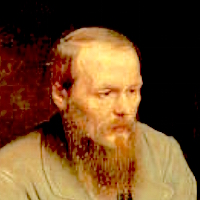
Fyodor Mikhailovich Dostoyevsky Фёдор Миха́йлович Достое́вский
1821 – 1881 CE
One of history’s most influential novelists and one of the greatest psychologists in world literature; Dostoyevsky led a tortured life that included being arrested for discussing banned books, being sentenced to death, spending 4 years in a Siberian prison camp, 6 years of forced/exiled military service, and struggling with a gambling addiction that made him have to beg for money. His second wife who he met when she was 19 and he 25 years older, helped turn his life around and produce some of the world’s best literature. His books have been translated into more than 170 languages and he was admired by Hermann Hesse, Ernest Hemingway, James Joyce, Kafka and Sartre. Albert Einstein called him a "great religious writer,” Nietzsche “among the most beautiful strokes of fortune in my life", Sigmund Freud called The Brothers Karamazov "the most magnificent novel ever written,“ and Virginia Woolf said, "Out of Shakespeare there is no more exciting reading.” His influence in modern time extends to the existentialists, surrealists, and the Beat generation.
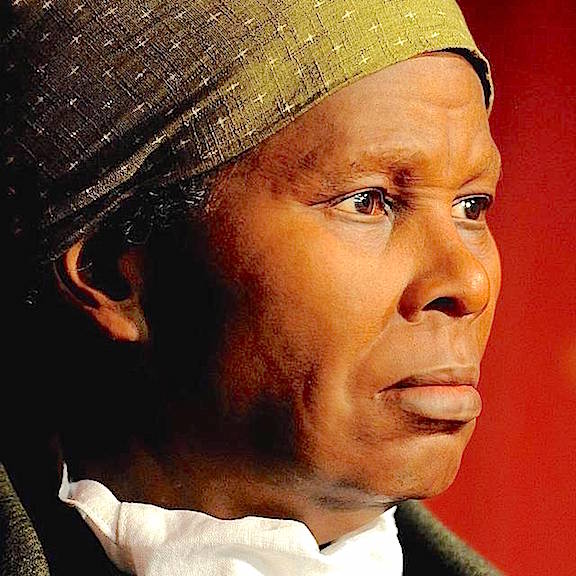
Harriet Tubman (Araminta Ross)
1822 – 1913 CE
Beaten, whipped, and escaped slave; US armed army spy, nurse and scout during the Civil War; and soon to replace on the $20 bill slave-owning Andrew Jackson who illegally broke treaties with native Americans and refused to support Supreme Court rulings in their favor; Tubman was the first woman to lead an armed war campaign (that freed 700+ slaves), used the Underground Railroad to secretly rescue over 70 slave families, found work for the newly freed slaves, and became an important part of the women's suffrage movement. A devout Christian considered by many a saint, although living in constant poverty, she never stopped her humanitarian work and is now a shining symbol for courage and freedom.
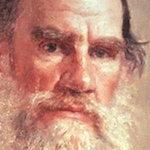
Leo Tolstoy
1828 – 1910 CE
One of the greatest authors of all time, Tolstoy’s dedication to nonviolent resistance had a deep impact on leaders like Mohandas Gandhi and Martin Luther King. His influence on education was opposed and stopped by Tsarist secret police but still became the first example of democratic education. Inspired by the Buddha, Confucius, and Chinese traditions, he was a strong Christian in a style like the early Gnostics and believed in seeing “The Kingdom of God Is Within You” rather than relying on an external church organization or priests. Excommunicated from the Russian Orthodox Church, he revived and inspired an authentic and practical Christian philosophy.
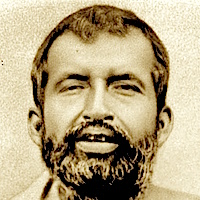
Ramakrishna
1836 – 1886 CE
Ramakrishna Paramahamsa (Bengali: রামকৃষ্ণ পরমহংস (1836 – 1886)
Indian mystic, yogi, inspiration for the 19th–20th century Bengali Renaissance; Ramakrishna became a strong revitalizing influence on Indian culture. His "social service gospel,” disciples like Vivekananda, and organizations do major philanthropic work in education, health care, disaster relief, rural management, and in eliminating tribal welfare. Steeped in Hindu philosophy and practices, he also initiated into and practiced Islam and did the same with Christianity teaching ‘All religions as true.’ His impact on thought leaders extended from names like Gandhi and Nehru to westerner ones like Tolstoy, Dvorak, and Philip Glass.
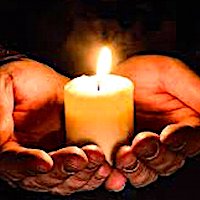
William L. Watkinson
1838 – 1925 CE
Well-known and accomplished Christian preacher
Methodist minister from England
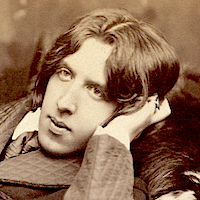
Oscar Wilde
1854 – 1900 CE
Oscar Wilde (1854 - 1900)
Prolific Irish poet, writer, journalist, and one of the most successful playwrights of his time; Wilde rebelled against his moralistic, Victorian environment with an “unequivocal inclination toward the unconventional” favoring passion and sensual pleasure. Strongly influenced by his teacher, John Ruskin, he transformed his more hedonistic tendencies into deep social concerns and wrote against decadence, duplicity, and libel. Married and with two sons, his writings went against popular opinion by describing women as creative and intelligent. His liaisons with men however led to a trial for homosexuality, incarceration, a severe injury in prison after collapsing from illness and hunger, and later death in extreme poverty. In many ways, his life seems to have exemplified his famous aphorism, “No good deed goes unpunished.”
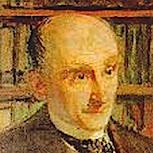
Henri-Louis Bergson
1859 – 1941 CE
The Plotinus of our era, proponent of the Lucretian tradition, awarded the 1927 Nobel prize in Literature and France’s highest honor the Grand-Croix; Bergson developed an open and nonsystematic philosophy based on mystical experience and a revolutionary concept of Multiplicity to replace dualism and Hegel’s dialectic. Close friend and collaborator with William James; Nikos Kazantzakis studied under him, his ideas on creative evolution influenced Teilhard de Chardin, and his ideas were provocative enough to be condemned by the Vatican and criticized by Bertrand Russell, Heidegger, Sartre, T.S. Eliot, Julian Huxley, Einstein, even Virginia Woolf. A Jew converted Catholic, he emphasized immediate experience and intuition over reason and science — the sense over the words.
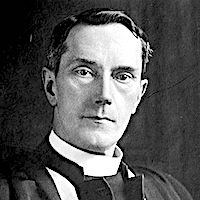
Dean Inge
1860 – 1954 CE
Christian mystic and philosopher
Although a prolific writer of 35+ books and nominated 3 times for the Nobel Prize in Literature, Inge isn’t a very well known historical figure. His insight, however, was deep and his influence on modern—at least Christian—culture profound. Author, priest, professor of divinity, passionate animal rights supporter, and Dean of St Paul's Cathedral; he criticized the Roman Catholic Church, disapproved of democracy, promoted nudity and eugenics. A serious, preaching Christian but on the mystical side, he advocated the philosophy of Plotinus and a kind of autonomous religion based on personal experience rather than external authority.
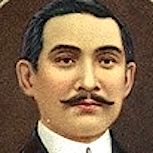
Sun Yat-sen 孙逸仙
1866 – 1925 CE
The Republic of China’s founding father and first president, physician, revolutionary, co-founder of the Kuomintang, and uniquely admired by both Taiwan and Mainland China; Sun Yat-sen grew up in Hawaii and after returning to China endured many exiles and almost constant political struggle. He championed the “Rule of Right over the Rule of Might” and dedicated his life to furthering democracy in China, free trade, tax reform, poverty alleviation, independence from foreign influence, and ethnic equality. He set up the first Chinese Central bank and the foundations for Chinese capitalism.
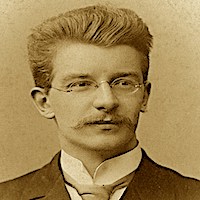
Richard Wilhelm
1873 – 1930 CE
Translator bridging East and West
Theologian, missionary, early sinologist, and personal friend of Carl Jung; Wilhelm gave us two culturally transformative translations: the I Ching and The Secret of the Golden Flower. He moved to China as a young man and lived there for 25 years. During that time, he met a sage driven out of his hermitage by the revolution—Lau Nai Suan who introduced him to the philosophy of Chinese yoga and the I Ching's psychology. This meeting and his studies produced a bridge between east and west but also a deep conflict within Wilhelm between consciousness and unconsciousness, between his Christianity and eastern philosophy.
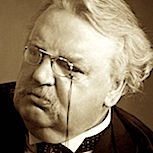
G. K. Chesterton
1874 – 1936 CE
Social critic, theologian, and philosopher turning popular proverbs inside out with deep insight and laugh-out-loud humor; Chesterton was called both the best writer and best thinker of the 20th century, “the most unjustly neglected writer of our time,” and the "prince of paradox.” One of the most prolific authors of all time, he wrote more than 100 books, hundreds of poems, plays, short stories and over 4000 newspaper articles. Over 300 pounds and 6’4,” normally wandering around lost with a cigar in his mouth, writing many of his articles in train stations after inadvertently missing his train; he criticized both capitalism and socialism predicting the modern polemic stalemate of progressives “continually making mistakes” while conservatives continue to “prevent the mistakes from being corrected." He influenced atheist C.S. Lewis’s conversion to Christianity, the movement for Irish Independence, and Gandhi’s movement to end British colonial rule. He “changed the life” of Marshall McLuhan and inspired the novels and writings of Neil Gaiman, Terry Pratchett, Ernest Hemingway, Graham Greene, Agatha Christie, Jorge Luis Borges, George Bernard Shaw, H.G. Wells, E.F. Schumacher, Bertrand Russell and many more.
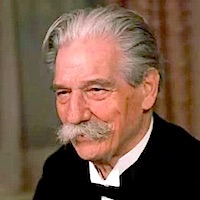
Albert Schweitzer
1875 – 1965 CE
An authentic Christian who didn't hesitate to criticize Christian extremism and hypocrisy, who genuinely practiced his faith by effective humanitarian work in Africa, and who realized a mystical and scientific union of individual and environment; Albert Schweitzer conveyed a deep reverence for all life and taught how destroying our environment is also destroys ourselves. Considered the greatest humanitarian of his day, he gave up a comfortable life as a professor and scholar to become a medical missionary in some of the world's most poverty-stricken places in Africa. After receiving the Nobel Peace Prize in 1952, he gave what many consider one of the best speeches ever given. His work against developing the atomic bomb, however, brought him under FBI/CIA scrutiny, public criticism, and the loss of financial support.

Hermann Hesse
1877 – 1962 CE
Guiding light for a world-wide cultural transition, spiritual teacher to the Beat generation, poet at heart and in life, soul of his age; Hesse was expelled from a Protestant seminary, denounced by the German media when he protested German’s involvement during WWI, and his books were banned and destroyed by Hitler. The 20th century’s most widely read European author, his books personify the balance between freedom and equality, the individual and society and the integration of opposites extolled by the non-thought lineages. After writing Nobel Prize-winning book, The Glass Bead Game, he devoted his life to mentoring young people and collaborating with peers like Thomas Mann and Carl Jung. He wrote over 30,000 letters to hundreds of different correspondents
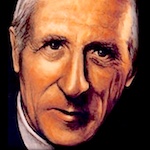
Teilhard de Chardin
1881 – 1955 CE
Philosopher, geologist, Jesuit priest and paleontologist, Chardin traveled extensively across China and helped discover Peking Man. Although frequently condemned and censored by church officials and his writings banned, later popes, cardinals and theologians praised him and his ideas. Similarly reviled and revered by scientists and described as everything from a “charlatan” to “one of the century’s most prophetic thinkers,” his life manifested the cutting edge of consciousness evolution he described so clearly.
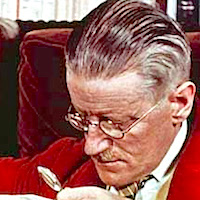
James Joyce
1882 – 1941 CE
James Joyce (1882 – 1941)
Polyphonic novelist, poet, one of the most influential 20th century writers, stream of consciousness avant-garde modernist; Joyce revolutionized modern fiction while - according to a psychoanalyst - using his writing to avoid a complete psychotic break. A huge influence on philosophers and writers as varied as Borges, Rushdie, Beckett, Robert Anton Wilson, Joseph Campbell, and John Updike; his influenced crossed over into the world of science as he became the source of the now popular scientific term, “quark..” Finnegans Wake - considered the most challenging work ever written in the English language - shines as a monument to the possibilities of creative spirit unshackled by regard for public opinion. Although considered one of the greatest novels ever written., controversy and resistance kept his novel Ulysses from being published in the USA until 12 years after it was written. His writing style and content brings out the deeper reality of situations and experiences pointing toward the sense rather than the words.
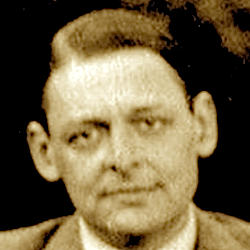
T. S. Eliot
1888 – 1965 CE
T.S. Eliot, Thomas Stearns Eliot (1888-1965)
Literary and social critic, "one of the twentieth century's major poets,” publisher and playwright, Nobel Prize winner and “the poet of the modern symbolist-Metaphysical tradition;” T.S. Eliot wrote some of the best known English poems. Reversing the more common trend, he was more respected during his lifetime, less so after but still almost universally acknowledged as a pioneering and major influence on modern poetry. He emphasized insight and poetry arising from the unconscious mind. Often accused of anti-Semitism, he described himself as a "classicist in literature, royalist in politics, and anglo-catholic in religion".
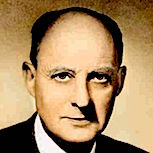
Reinhold Niebuhr
1892 – 1971 CE
Composer of the Alcoholics Anonymous Serenity Prayer, author of a nonfiction book ranked in the top 20 of the twentieth century, "the most influential American theologian of the 20th century,” leading political and cultural commentator for over 30 years; Niebuhr challenged religious conservatives as narrow-minded, religious liberals as naive and taught a middle-way “Christian realism.” Barack Obama’s "favorite philosopher" and a deep influence on Thomas Edison, Jimmy Carter, Martin Luther King Jr., John McCain, and given the Presidential Medal of Freedom by Lyndon Johnson; one of his books was called, "the most important book ever written on U.S. foreign policy.”
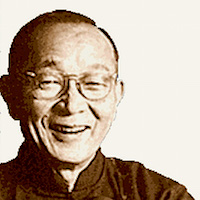
Lín Yǔtáng 林語堂
1895 – 1976 CE
One of the most influential writers of his time, translator, linguist, journalist, inventor, and nominated for the Nobel Prize in Literature; Lin Yutang worked hard to bridge the divides between East and West. He invented and built a Chinese typewriter, romanized the Chinese language, helped publish a Chinese-English dictionary, and brought Chinese culture and wisdom into the Western world’s awareness. Many of his classic Chinese translations became bestsellers helping to popularize Chinese philosophy. A prolific writer, he published magazines, wrote innumerable essays, and his books include more than 14 in Chinese and more than 30 in English. Born into a Christian minister’s family, he later studied and followed Confucianism, Taoism, and Buddhism but returned to a Christian path in his 60’s.
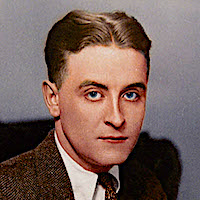
F. Scott Fitzgerald
1896 – 1940 CE
Prototype of "Jazz Age" exuberance
One of the greatest American writers, prototype of "Jazz Age" exuberance, and symbol of the "Lost Generation"; Fitzgerald became popular and successful during his lifetime but not respected in the literary world until after his death. His passion for writing interfered with his college pursuits and he had to drop out of Princeton and join the army where he became a student of Dwight Eisenhower whom he passionately disliked. During this time he met his future wife, Zelda Sayre who was the daughter of a state Supreme Court justice but she wouldn't marry him until his first novel became famous and he finally had an income steady enough to support her opulent lifestyle. Her later mental illness, his alcoholism, health and financial problems plagued his later years and he died from a heat attack when only 44.
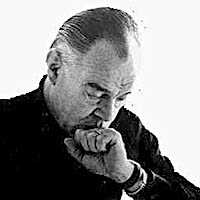
Denys de Rougemont
1906 – 1985 CE
Non-conformist leader, influential cultural theorist
Cultural theorist, prolific writer of 32+ books, and Swiss defender against Nazi propaganda; de Rougemont was an influential non-conformist of the 1930's, opponent of his era's totalitarian movements, and advocate for European federalism. His ground-breaking book, Love in the Western World, questioned and criticized Western Civilization's fascination with romantic, unrequited love. A paramour of Saint-Exupéry's Salvadoran wife, Consuelo ("The Rose"), he modeled for a Little Prince painting, wrote a Saint-Exupéry biography, and later helped Consuelo write her own autobiography.

Dietrich Bonhoeffer
1906 – 1945 CE
Theologian, prolific and influential author, anti-Nazi double-agent spy, martyr, and non-thought lineage holder; Bonhoeffer worked against Hitler and the Third Reich when almost everyone around him was either seduced, bullied or exterminated and his fellow pastors were preaching, "Christ has come to us through Adolph Hitler." Leaving a safe home in America; he helped smuggle Jews into the neutral Switzerland, vocally and secretly opposed the Nazis, and was tortured and killed in a concentration camp. A deeply religious Christian, he taught a “religionless Christianity” without a metaphysical God confused by concepts and belief.
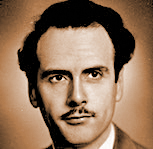
Marshall McLuhan
1911 – 1980 CE
The most controversial and most publicized 20th century English professor, philosopher, founding father of media theory study, visionary “global village” describer who 30 years before it was invented predicted the WWW and coined the term "surfing;” Marshall McLuhan was a popular figure in the 60’s but soon forgotten until the internet proved his predictions and confirmed the ever-increasing cultural influence of technology on culture, business, psychology, and politics. Inspired by G. K. Chesterton to become a Roman Catholic, he credited the Virgin Mary for giving him intellectual guidance. Warning against the dangers of ignoring the consequences of new inventions, his deep historical insights into how new technologies in the past influenced culture give a strong foundation for his analysis of current and soon-to-come technology leading to a “global theater,” a collective identity, "electronic interdependence" ending individualistic print culture, and the creation of a new, global, and ”tribal base.”
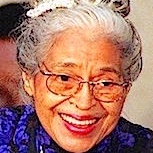
Rosa Parks
1913 – 2005 CE
Symbol of the Civil Rights Movement, an international icon of resistance to racial segregation. and called by the US Congress “the mother of the freedom movement;” Rosa Parks sparked the the Montgomery Bus Boycott and as a result was fired from her job and received death threats for years. She dedicated her life to advancing social issues, donated most of the money from her almost constant speaking engagements, and although given the Presidential Medal of Freedom, the Congressional Gold Medal, numerous awards; she lived a very simple, poor and private life and was even evicted from her apartment in 2002. The subject of many books, films, and songs; her legacy continues to inspire efforts toward equality everywhere.
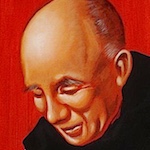
Thomas Merton
1915 – 1968 CE
Mystic, Trappist monk, and friend of Thich Nhat Hanh, Chogyam Trungpa, the Dalai Lama, and D.T. Suzuki; Merton championed social justice issues, the civil rights movement, and ending the nuclear arms race. Writing more than 70 books, he continually studied and practiced not only Christian mysticism but also Buddhism, Taoism, Hinduism, Jainism, Sufism, and Native American spirituality. In 2015 Pope Francis called him, “a thinker who challenged the certitudes of his time and opened new horizons… a man of dialogue, a promoter of peace between peoples and religions.”
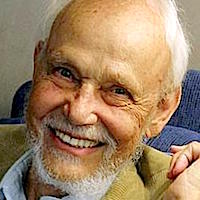
Huston Smith
1919 – 2016 CE
Born in Suzhou, Huston Smith lived there with his Christian missionary parents until 17 when he moved to the USA where he became not only a religious scholar but a practitioner of his Christian tradition as well as Vedanta, Sufism, and Zen Buddhism for more than 10 years each. A close student of Aldous Huxley, he became an integral part of the Harvard Project and the Center for Personality Research working with Timothy Leary and Ram Das. When the Supreme Court ruled against Native Americans using peyote as a religious sacrament, he took up the cause and helped pass the American Indian Religious Freedom Act amendment. In the 1950s, he helped Martin Luther King break the color barrier at a segregated University and later helped the Dalai Lama come to the USA for the first time. Lifelong advocate of religious synergy, social justice and peace; his work blended theology, mythology, and science.
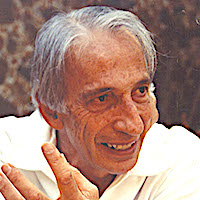
Ivan Illich
1926 – 2002 CE
"an archaeologist of ideas"
Philosophical eco-warrior, Roman Catholic priest, anarchist, polymath, "jet-age ascetic," and prolific author; Illich—working in 10 languages—critically analyzed Western culture—economics, medicine, education, transportation, development, work and energy. After becoming a priest in 1951, he signed up to work in one of New York's poorest areas with Puerto Rican immigrants. This led to a University appointment in Puerto Rico that lasted until he was fired for being too critical of the pope's anti-birth control stance. His later life became an enlivening educational experience for all within his influence.
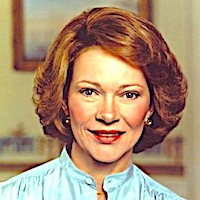
Rosalynn Carter
1927 – 1923 CE
Insightful and compassionate politician
Oldest living First Lady, author of 5 books, strong supporter of equal rights, and active member of the Carter administration; Rosalynn Carter disdained the role of traditional First Lady and was criticized by members of her own party who believed “women are meant to be kept at home and that's all." Instead, she broke the molds confining presidents’ wives to being only official hostesses. For only the second time in history for a First Lady, she appeared before Congress to testify, in this case for a new Mental Health System bill. A strong voice against Ronald Regan who she believed was ruining the country, she promoted peace in Israel, human rights in Brazil, help for refugees from Pol Pot, and Habitat for Humanity. Not afraid to disagree with her husband on policy issues, she actively disagreed and argued with him during his time as president and up to recent times disagreeing with him about Russian interference in the 2016 election.
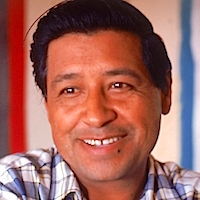
César Chavez César Estrada Chávez (César Estrada Chávez)
1927 – 1993 CE
Iconic "folk saint,” Mexican-American farm laborer, civil rights activist, grass roots organizer, co-founder of the the United Farm Workers union; Cesar Chavez used nonviolent but spirited methods to further the rights and living standards of farm workers. Nominated 3 times for the Nobel Peace Prize, given the Presidential Medal of Freedom, and inducted into the California Hall of Fame; he promoted and practiced non-violence, vegetarianism, and Hispanic empowerment helping to establish collective bargaining for farmworkers.
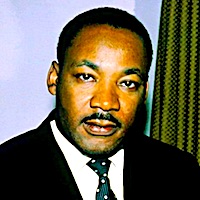
Martin Luther King Jr.
1929 – 1968 CE
Leading world influence for equality, peace, non-violence, and poverty alleviation
(1929–1968)
Baptist minister, one the the 20th century’s most admired people, “the conscience of his generation,” most famous civil rights leader, and known for one of history’s most influential speeches; Martin Luther King became one of the world’s most effective forces for equality, peace, and poverty alleviation. An enemy of J. Edgar Hoover, investigated by the FBI, and assassinated; his life proved the power and unstoppability of a good and pure heart. Practicing Gandhian nonviolence and Thoreauvian civil disobedience, he won the Nobel Peace Prize, the Presidential Medal of Freedom, the Congressional Gold Medal, 50 honorary university degrees; and today, a national holiday and hundreds of US streets are named in his honor.
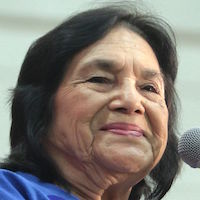
Dolores Huerta
1930 CE –
Champion for workers', immigrants', and women's rights; labor leader and civil rights activist; co-founder of an organization that became the United Farm Workers (UFW); Huerta was the first Latina inducted into the Women's Hall of Fame and received both the Eleanor Roosevelt Award for Human Rights and the Presidential Medal of Freedom. In 1988 her severe beating (necessitating spleen removal in emergency surgery) by police during a peaceful protest was caught on videotape and resulted in change SFPD crowd control policies and a huge settlement that she used to benefit farm workers.A frequent subject for murals, ballads, and the names of schools; she was on stage with Robert Kennedy just before his assassination, in 2008 formally placed Hillary Clinton's name into nomination, and was honorary co-chair of the 2017 Women's March on Washington. Though almost 90, she continues to work through her foundation on health, environment, education, and economic development. (picture at age 86)
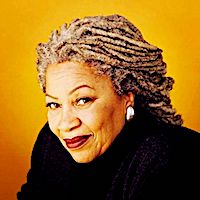
Toni Morrison (Chloe Ardelia Wofford)
1931 – 2019 CE
Story-telling voice of American wisdom
Novelist, professor, and essayist; Toni Morrison became Random House's first black woman editor. She consistently and insightfully addressed issues like race, feminism, white supremacy, and politics without fixating on extremes and while always keeping on open view. She won the Nobel Prize in Literature, the Pulitzer, the National Book Critics Circle Award, the American Book Award, and she was chosen for the Jefferson Lecture—the U.S. government's highest honor for accomplishment in the humanities. President Barack Obama presented her with the Presidential Medal of Freedom
Related Sources (4 sources)
Ecclesiastes קֹהֶלֶת by Koheleth
Gospel According to Thomas by Jesus
New Testament Διαθήκη by Jesus
Quotes about the Christian Lineage (37 quotes)

“What Christianity needs is a return from the Church to Christ, from wealth and power to simplicity of life and humility of rule. The Church should be defined not as the clergy alone but as the whole Christian community... a council should choose and govern the pope.”
Comments: Click to comment

“The Jews hold a middle place between the Christians and the pagans. The Pagans do not know God, and love only the earth. The Christians know God, and do not love the earth.”
Comments: Click to comment
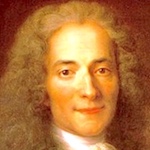
“Tell me if there have been peoples other than the Christians and the Jews in whom zeal and religion wretchedly transformed into fanaticism, have inspired so many horrible cruelties…. Yes, the Mohammedans… As for the other nations there has not been one right from the existence of the world which has ever made a purely religious war.”
Comments: Click to comment
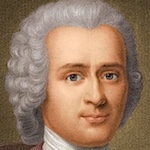
“Christianity preaches only servitude and dependence. Its spirit is so favorable to tyranny that it always profits by such a regime. True Christians are made to be slaves, and they know it and do not much mind: this short life counts for too little in their eyes.”
Comments: Click to comment
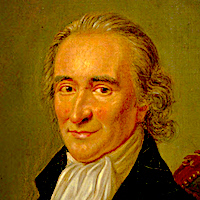
“I do not believe in the creed professed by the Jewish church, by the Roman church, by the Greek church, by the Turkish church, by the Protestant church, nor by any church that I know of. My own mind is my own church. All national institutions of churches, whether Jewish, Christian or Turkish, appear to me no other than human inventions, set up to terrify and enslave mankind, and monopolize power and profit.”
Comments: Click to comment
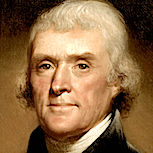
“[the Church] perverted into an engine for enslaving mankind, a mere contrivance to filch wealth and power to themselves... the greatest obstacles to the advancement of the real doctrines of Jesus”
Comments: Click to comment
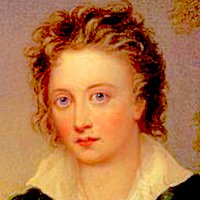
“The same means that have supported every popular belief have supported Christianity: war, imprisonment, assassination and falsehood; deeds of unexampled and incomparable atrocity have made it what it is.”
Comments: Click to comment
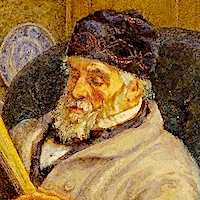
“If Jesus Christ were to come today, people would not even crucify him. They would ask him to dinner, and hear what he had to say, and make fun of it.”
Comments: Click to comment

“The intention of Christianity was to change everything... [but] Christianity has done away with Christianity without being aware of it”
Comments: Click to comment
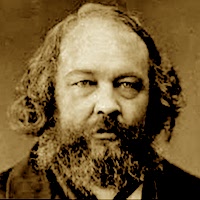
“The great honor of Christianity, its incontestable merit, and the whole secret of its unprecedented and yet thoroughly legitimate triumph, lay in the fact that it appealed to that suffering and immense public to which the ancient world—a strict and cruel intellectual and political aristocracy—denied even the simplest rights of humanity. Otherwise it never could have spread.”
Comments: Click to comment
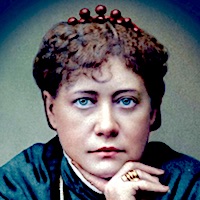
“Wisdom and Truth are synonymous terms, and—well-known by representatives of the Church of England—the Sermon of the Mount would, in its practical application, mean utter ruin for their country in less than three weeks”
Comments: Click to comment

“The Christian virtues inculcated by Jesus in the Sermon on the Mount are nowhere exemplified in the Christian world... Meanwhile the vices which coarse-mouthed slanderers have attributed to Paganism, are current everywhere among Christian Fathers and Christian Churches.”
Comments: Click to comment

“If Christ were here now, there is one thing he would not be—a Christian.”
Comments: Click to comment

“In all the ages, the Roman Church has owned slaves with absolute certainty that it was right and according to God's will, what the Bible had mapped out. So unassailable was her position that in all the centuries she had no word to say against human slavery.”
Comments: Click to comment
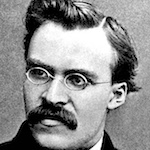
“The greatest recent event—that 'God is dead,' that the belief in the Christian god has become unbelievable—is already beginning to cast its first shadows... far too great, too distant, too remote for the multitude's capacity for comprehension, much less may one suppose that many people know as yet what this event really means, how much must collapse now... for example, the whole of our morality.”
Comments: Click to comment
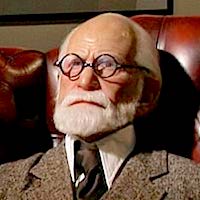
“Once the apostle Paul laid down universal love between all men as the foundation of his Christian community, the inevitable consequence in Christianity was the utmost intolerance towards all who remained outside of it.”
Comments: Click to comment
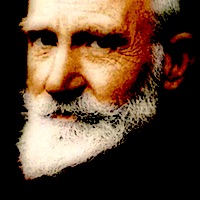
“Christ is not the lifeless harmless image he has hitherto been to you, but a rallying center for revolutionary influence which all established States and Churches fight”
Comments: Click to comment

“Why not give Christianity a trial? No sooner had Jesus knocked over the dragon of superstition than Paul boldly set it on its legs again in the name of Jesus. The followers of Paul and Peter made Christendom, whilst the Nazarenes were wiped out.”
Comments: Click to comment

“At the Reformation the composite elements flew apart... The Catholic became two-thirds pagan; the Protestant, at least in England, two-thirds Jew.”
Comments: Click to comment
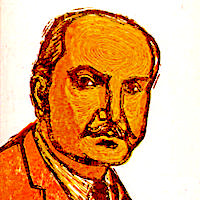
“Christianity persecuted, tortured, and burned. Like a hound it tracked the very scent of heresy. It kindled wars and nursed furious hatred and ambitions. Like Islam, it sanctified extermination and tyranny. All this would have been impossible if, like Buddhism, it had looked only to peace and the liberation of souls.”
Comments: Click to comment
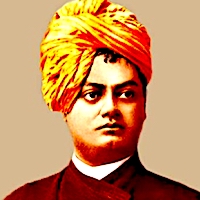
“See Christ, then you are a Christian; all else is talk.”
Comments: Click to comment

“Christianity also did much to soften the lot of slaves. It established charity on a large scale and inaugurated hospitals. Although the great majority of Christians failed lamentably in Christian charity, the ideal remained alive and in every age inspired some notable saints... it passed over into modern Liberalism and remains the inspiration of much that is most hopeful in our sombre world.”
Comments: Click to comment

“The close connection between virtue and knowledge is characteristic of Socrates and Plato, in all Greek thought, as opposed to that of Christianity. In Christian ethics, a pure heart is essential, and is at least as likely to found among the ignorant as among the learned. This difference between Greek and Christian ethics has persisted down to the present day.”
Comments: Click to comment

“This was called the 'Christian religion,' but none of it had anything to do with God as I had experienced Him... that is not religion at all. It is an absence of God; the church is a place I should not go to. It is not life which is there, but death.”
Comments: Click to comment
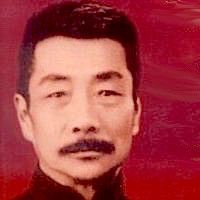
“Jesus said that it is easier for a camel to go through the needle's eye than for a rich man to enter into the kingdom of God, and had to go through Gethsemane. Now the rich men of the West are worshiping Jesus, and it is the poor who are going through Gethsemane.”
Comments: Click to comment

“The Church had overlaid the incomparable ethics of Jesus with a complex structure of incredible dogma echoing St. Paul and mostly unknown to Christ and with an omnipresent incubus of organization and theocratical police lying heavy upon the human mind, ready to stifle any independent thought by using the power of the state to imprison confiscate, and kill.”
Comments: Click to comment

“We must give courage to our leaders to lead us, to re-create for us a Christianity that would be intelligible to Christ.”
Comments: Click to comment
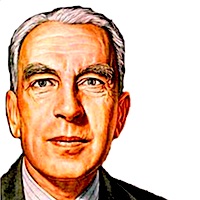
“The Mahometans, according to the principles of their faith, are under an obligation to use violence for the purpose of bringing other religions to ruin; yet they have been tolerating other religions for some centuries. The Christians have not been given orders to do anything but preach and instruct; yet they have been exterminating by fire and sword all those who are not of their religion... Christians enjoy the fine advantage of being far better versed than they are in the art of killing, bombarding, and exterminating the Human Race.”
Comments: Click to comment
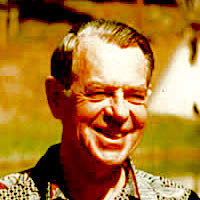
“The idea of the supernatural as being something over and above the natural is a killing idea. In the Middle Ages this was the idea that finally turned that world into something like a wasteland, a land where people were living inauthentic lives, never doing a thing they truly wanted to because the supernatural laws required them to live as directed by their clergy.”
Comments: Click to comment

“I fear that Christians who stand with only one leg upon earth, also stand with only one leg in heaven.”
Comments: Click to comment
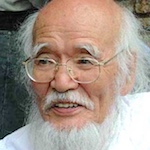
“The only option open to us now is to live by the wisdom of Buddha which transcends human intelligence and by the great love of Christ which transcends human love and hate. Never has this been more true that it is today.”
Comments: Click to comment
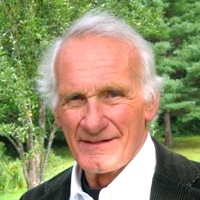
“It is not necessary for infinite players to be Christians; indeed it is not possible for them to be Christians... Neither is it possible for them to be Buddhists, or Muslims, or atheists, or New Yorkers... All such titles can only be playful abstractions”
Comments: Click to comment
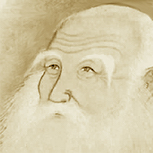
“Disappointment, poverty, suffering, and despair create a fertile planting mix for religious and political extremism. The more desperation people find themselves in, the more welcoming they become to promises of salvation. The more degraded the conditions we find ourselves here on earth, the more appeal we have for visions of heavenly perfection. Perhaps having the most vivid and pleasurable description of heavenly bliss described by a political or religious dogma; the more attractive to poverty-stricken, despairing populations. This could explain the rapid growth and power of the Catholic Church during the Middle Ages, of Islamic extremism in today’s world.”
Comments: Click to comment
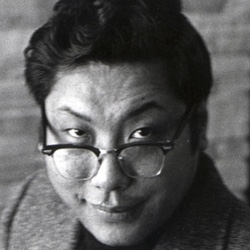
“Christianity, more or less, has been a religion of a future life. Life here is very ephemeral and we are here only in order to prepare ourselves for another life, a greater life, which comes after death... A great deal of social evolution didn't take place because the attitude was to keep to the status quo since this life was not supposed to be improved; you are supposed to accept it as God's will”
Comments: Click to comment
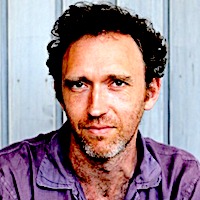
“In 1532, the Holy Roman Emperor introduced a penal code that banned the use of contraceptive devices. The message was clear: you can no longer have sex for the fun of it. Half a millennium later, this kind of thinking remains at the root of the Catholic Church's official opposition to birth control”
Comments: Click to comment

“Protestant ideals in the 16th and 17th centuries.. abolished carnivals and festivities, while thousands of laws were introduce to ban fairs and dances, sports and theater... happiness was not to be enjoyed in this life but was rather a reward granted by God to true believers in the next”
Comments: Click to comment
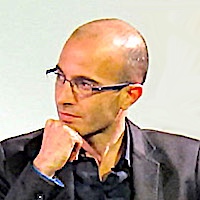
“Most stories are held together by the weight of their roof rather than by the strength of their foundations. Consider the Christian story. It has the flimsiest of foundations. What evidence do we have [and yet] Entire wars have been waged over changing a single word of the story.”
Comments: Click to comment
Comments (0)